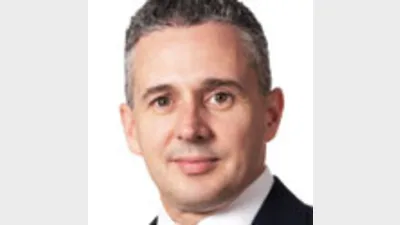Strong $A hits AXA result



AXA Asia Pacific chief executive Andrew Penn (pictured) has claimed his business is in good shape for its merger with AMP Limited after reporting an 11 per cent decline in net profit after tax and non-recurring items to $601.6 million.
The result was based on a 3 per cent increase in group operating earnings, with the board declaring a final dividend of 9.25 cents per share.
The result was announced to the Australian Securities Exchange at the same time as consultants Grant Samuel confirmed the merger transaction with AMP was fair and reasonable, and in the best interests of AXA Asia Pacific minority shareholders.
Penn said the result was strong when the impact of the strengthening Australian dollar was taken into account.
“After more than a year of ownership uncertainty, I am very pleased with the professionalism and focus of our teams and the exceptional performance of our businesses,” he said. “The AXA APH operations are well positioned to continue to grow, and we will be handing our businesses over in good shape if the merger with AMP and the sale of the Asia business to AXA SA is approved.”
Looking at the Australian operation, Penn said that operating earnings were up 8 per cent against a background of cautious investor sentiment and continued uncertainty regarding the future regulatory environment.
“We have maintained our strong product development program during 2010 in both wealth management and financial protection,” he said.
Drilling down on the AXA announcement, it revealed that wealth management earnings were up 40 per cent to 63.6 per cent, while financial protection was down 10 per cent to $75.9 million.
However, it also revealed that Australian wealth management inflows were down 9 per cent to $7.45 billion, with AXA wealth management gross inflows down 17 per cent to $6.31 billion.
It said total wealth management net flows including AllianceBernstein were up $3.21 billion.
Looking at advice, the company said gross inflows were down 14 per cent to $1.94 billion with net flows down $1 billion, reflecting both investor uncertainty and a reduction in Genesys adviser numbers.
Recommended for you
In this episode of Relative Return Insider, host Keith Ford and AMP deputy chief economist Diana Mousina break down the spike in inflation numbers and what it means for the possibility of a rate cut as we move into the new year.
In this episode of Relative Return Insider, host Keith Ford and AMP economist My Bui explore Prime Minister Anthony Albanese’s trip to the US and the critical minerals deal stemming from his meeting with President Donald Trump.
In this episode of Relative Return Insider, host Keith Ford and AMP chief economist Shane Oliver unpack the latest unemployment numbers and what they mean for a rate cut, as well as how the latest flare-up in the ongoing US–China trade dispute has highlighted the remaining disparity between gold and bitcoin.
In this episode of Relative Return Insider, host Keith Ford and AMP chief economist Shane Oliver take a look at the unfolding impacts and potential economic ramifications of the US government shutdown and the surge in gold and bitcoin prices.







